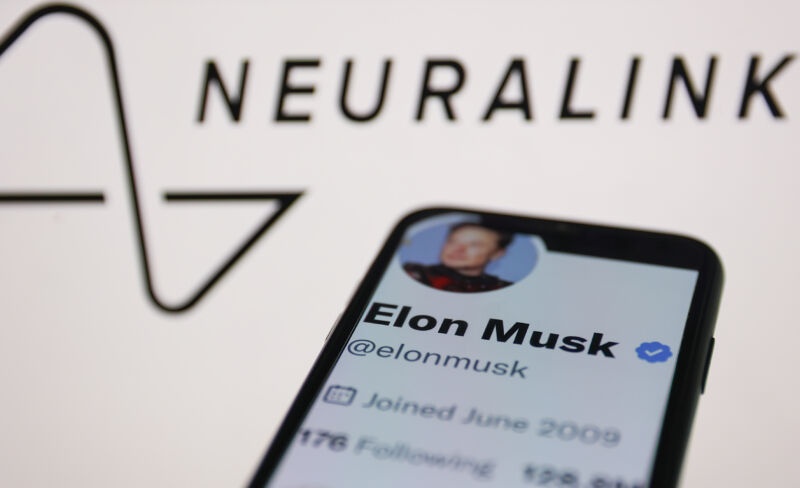
The Food and Drug Administration denied a human-trials application from Elon Musk's brain-computer interface company, Neuralink, in early 2022, citing dozens of concerns about the company's device that employees are still working to address, according to a report by Reuters. The report is based on interviews with seven current and former Neuralink employees.
The revelation of the FDA rejection tracks with the thin public progress reports from the company, which place Neuralink behind rivals as well as Musk's ambitious timelines. Musk, who co-founded Neuralink in 2016, said in 2019 that the company aimed to start human trials by the end of 2020 and held lofty goals of curing spinal cord injuries and dementia. In a November 2022 presentation, which showed little technological progress, Musk said the company was still about six months away from human trials.According to a company document from last fall, Neuralink expected to get FDA authorization for trials by March 7—next week. But employees who spoke with Reuters said they are not confident they'll get it, with one calling it a "gamble."
The FDA's rejection last year reportedly listed dozens of "deficiencies" that Neuralink needs to address before its device can move to human brains. Some concerns were deemed relatively minor by employees who read the FDA's document and spoke with Reuters. But others were significant. The FDA was particularly concerned about the safety of the rechargeable lithium batteries Neuralink proposed for its device. The regulator said the company needed to do animal testing to show the battery was very unlikely to malfunction, which could damage brain tissue.
Another reportedly serious concern from the FDA was that the implant's tiny wires—which are thinner than individual human hairs—could migrate into the brain, potentially causing inflammation, rupturing blood vessels, and impairing brain function. The FDA was also concerned about the device overheating and questioned whether it could be removed from people's brains without causing damage.
While Neuralink may be able to address and overcome all of the FDA's concerns, the company will need to do more animal testing—which current and former employees say Neuralink has handled irresponsibly in the past. Specifically, some have alleged that the company abused research animals, including euthanizing more animals than necessary and performing "hack job" surgeries to meet Musk's rushed deadlines. The Department of Agriculture has opened an investigation into Neuralink over possible animal welfare violations. Similarly, the Department of Transportation is investigating whether Neuralink violated federal transportation regulations when it allegedly shipped brain implants removed from research monkeys infected with a number of dangerous pathogens.
Neuralink did not immediately respond to requests for comment from Ars. Reuters also reported that Neuralink did not respond to requests for comment.
reader comments
195